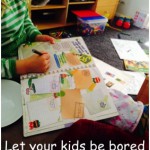 Newton was a revolutionary physician and mathematician in the 1600s that coined the term ‘For every action, there is an equal and opposite reaction’. Little did he know that his third law could have so much relevance in the 21st century, but for different reasons.
Newton was a revolutionary physician and mathematician in the 1600s that coined the term ‘For every action, there is an equal and opposite reaction’. Little did he know that his third law could have so much relevance in the 21st century, but for different reasons.
One of the biggest lessons we can teach our school children is that for every action there is a consequence – it allows them to assess the situation before they make a choice. Every day as a parent, we are teaching our kids that if they do something, something else will happen. For example, if you touch the oven, it will burn you – if you climb on the bench, you will fall off – if you throw the ball in the house, you will knock something over or more positively, if you eat all your breakfast, you will grow up big and strong. We make choices every day – even before we can walk and talk. Some are conscious, others are subconscious – the more information we are armed with the better choice we can make.
A lot of our public messages are also based on this premise – if you drink and drive, you will kill someone – if you drive while on the phone, you will crash – if you speed, you will die or get fined. As a school teacher, I was constantly teaching children that there was a consequence for their actions. If they didn’t do their spelling homework, they would get words wrong. Or if you didn’t wash your hands, you would get sick. Or if you didn’t do up your lunchbox, the birds would get in.
In our house this week, it has been one of our most talked about topics! I am struggling to teach one of my three children that if they have a particular behaviour, they must wear the consequences. If that means I am cross and she misses out on things, that is the outcome of her behaviour and she needs to take responsibility for her action. Interestingly, she has always had to learn the hard way and as much as I tell her that if she does something, something else will happen – she seems only to learn by experiencing it. This can be a challenge for everyone involved, but she also seems to get it more quickly by learning through her own mistakes. I hope that if I tell her the message often enough, it will sink in, but sometimes it is relentless and exhausting!
Consequence for your action becomes even more important as a teenager. If you decide to take that drug, there are a lot of negative consequences and you could be hooked. If you go home with that person, this might happen. If you choose football over soccer, your friends will change and the list goes on. Teaching ‘for every action there is an equal and opposite reaction’ allows our children to assess the consequence before they take the action. It is an invaluable tool to be able to make the right choice based on the consequences. I am sure the teenager in the post I wrote about Story of a 19-year-old missed the learning that there are consequences for his actions.
Parents themselves are not exempt from this rule. Each choice you make for your child, whether is be over discipline, nutrition, exercise or sleep – there is a long-term consequence for your child. Ideally it will be a positive action, leading to a positive consequence, but never the less it will affect your child. While we can not see an immediate result of the choice we make for our children, making these choices are not without their consequences. I can only hope that the ground work I put in now will be part of who my teenager and adult child becomes.
Do you have any tips for teaching your children the meaning of consequences for your actions?







Sorry, comments are closed for this post.